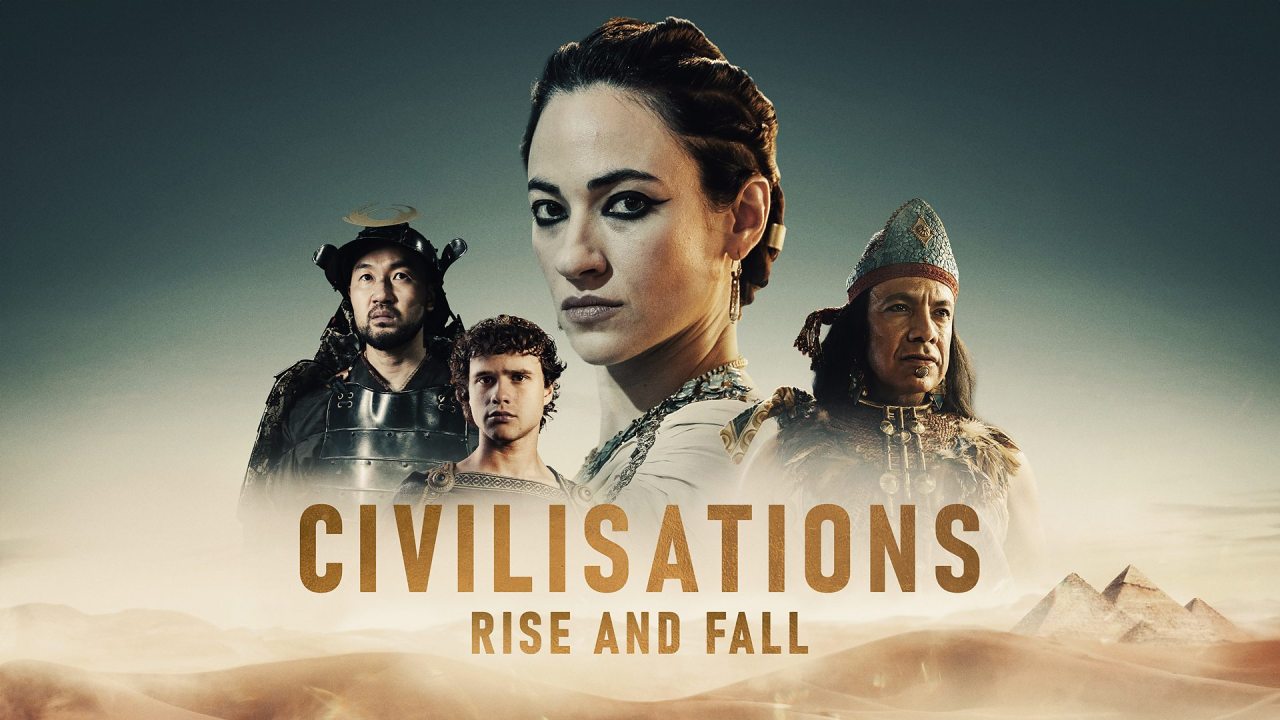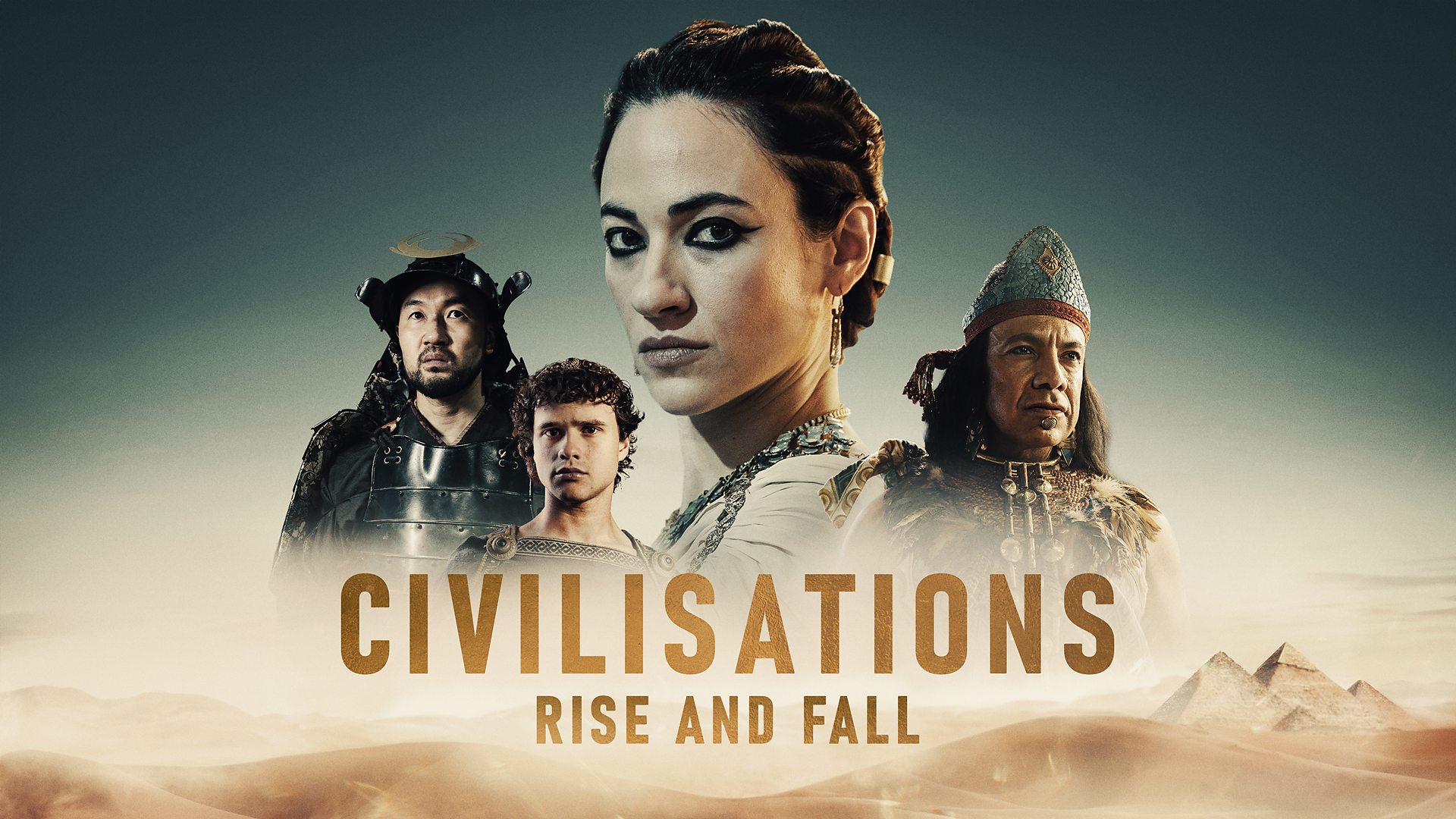Everyone’s moaning about political bias at the BBC. They have done for years. And they’ll continue to. The right’s accusations that the BBC is anti-Trump and anti-Israeli are mirrored by the left’s accusations that the BBC is pro-Israel and reluctant to criticise Brexit. This indicates the difficulty of the broadcaster’s role, and suggests it’s probably doing something right.
The bigger issue with the BBC is that it is dumbing down its output, a process that it’s half confessed to with its vow to make ‘lighter’ content for ‘C2DE’ audiences, whatever they are. If you want an example of this condescension, look no further than the BBC’s latest blockbuster series, Civilisations: Rise and Fall, which began on Monday night with the Sack of Rome.
In its worst parts, it seemed more like a Channel 5 effort, for post-pub viewers on a Friday night. There was needless CGI, sepia rinses and five talking heads a-minute making vapid sound bites. BBC arts chief Suzy Klein had the chutzpah to compare it to Kenneth Clark’s 1968 TV magnum opus, Civilisation.
She acknowledges – and who wouldn’t – that Clark’s Civilisation ‘became a defining piece of television, opening up a world of art and culture to audiences at home’. She says the new series, Civilisations: Rise and Fall, ‘is the next iteration’.
There was actually a second ‘iteration’. In 2018, ubiquitous TV intellectuals Dame Mary Beard, David Olusoga and Simon Schama examined the role that art has played in shaping civilisations around the world. It received criticism from some quarters for lacking a coherent narrative. But at least the programme makers couldn’t be accused of dumbing down. They can this time. It seems the BBC can’t trust us to concentrate on something as monumentally interesting as the fall of the Roman Empire for more than three minutes without the help of cheap gimmicks.
The talking heads, in particular, were numerous, annoying and relentless. Historian Kristina Sessa, with arms waving, was clearly keen for as much airtime as possible, despite not having that much to say. She even tells us the same thing in successive sentences. Apparently, Honorius, the callow emperor who presided over the city’s fall, ‘is not from Rome. He is not even born in Rome.’ So that’s clear.
Actually, at least that made sense. Her initial contribution was designed to set the scene in 410AD as Visigoths stormed the Eternal City. ‘Imagine thousands of men pouring into your city and rushing into your home,’ she trilled. I can’t. I live in a 60 square metre flat in Kennington.
There were countless interludes with ham actors, supposed to illustrate political intrigues in the imperial palace. The impression was less I Claudius and more Carry on Cleo.
The second episode looks at the fall of the Ptolemais in Ancient Egypt. We don’t have commentary from Cleo’s Amanda Barrie, although we might as well have. Instead, we’re treated to the expert analysis of Alastair Campbell. Yes, Tony Blair’s old spin doctor. No, he hasn’t spent recent years retraining as an Egyptologist. He is on hand to belabour the point that ancient empires, including that of the Ptolemais, suffered from the same sort of social political crises that we do.
The series continues another depressing trend, highlighted recently by the recent documentary series Human: the emergence of the poseur-presenter. Human was difficult to watch for more than a few minutes without wanting to throw your dinner at the pouting face of presenter and paleoanthropologist Ella Al-Shamahi, as she flicked back coiffured curls and made am-dram gesticulations. The BBC seemed to think we were too shallow and feeble-minded to watch a documentary on something as fascinating as the history of the human race, without an attractive, camera-loving guide to maintain our attention.
Civilisations has its very own poseur
Having a young, female presenter of Arab descent shows inclusive hiring. If TV representers from minorities are talented – the brilliant Ade Adepitan comes to mind – then sign them up, I say. But communication skills should be the top priority.
There were other defects in Human’s story-telling; particularly a lack of clear graphics or timelines to reinforce the deluge of claims and information – an odd failing given the BBC’s desire to make its high-profile documentaries accessible and intelligible to a wide audience.
Instead, we had endless blurry, low-res images of black extras from central casting posing as prehistoric family units, trudging across murky landscapes.
Civilisations has its very own poseur, Luke Kemp, from the Centre for the Study of Existential Risk. We are treated to his front and side profiles, as he smiles beneficently at the camera in a green velvet jacket, white shirt and pendant. He looks and sounds like a life coach. Which isn’t to suggest Kemp is a charlatan. But it does add the impression that the BBC think that ordinary people have the attention span of gnats. We don’t.
There is so much interesting stuff in Civilisations: Rise and Fall – from Rome, Egypt, Mexico and Japan. We want to hear it, without the gimmicks.








Comments